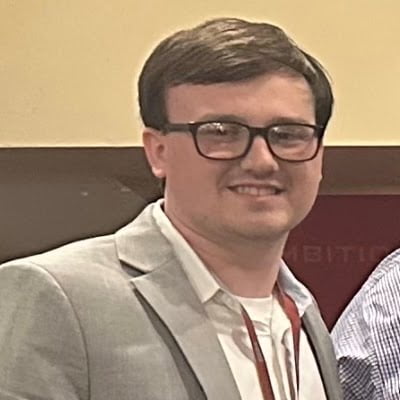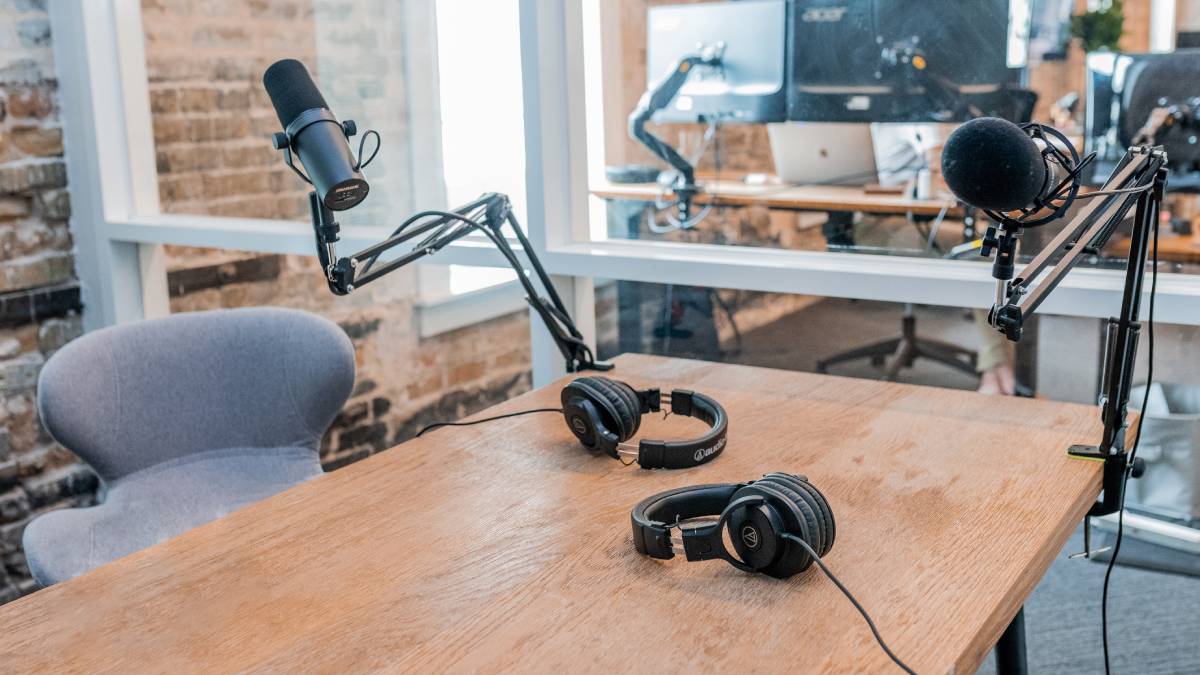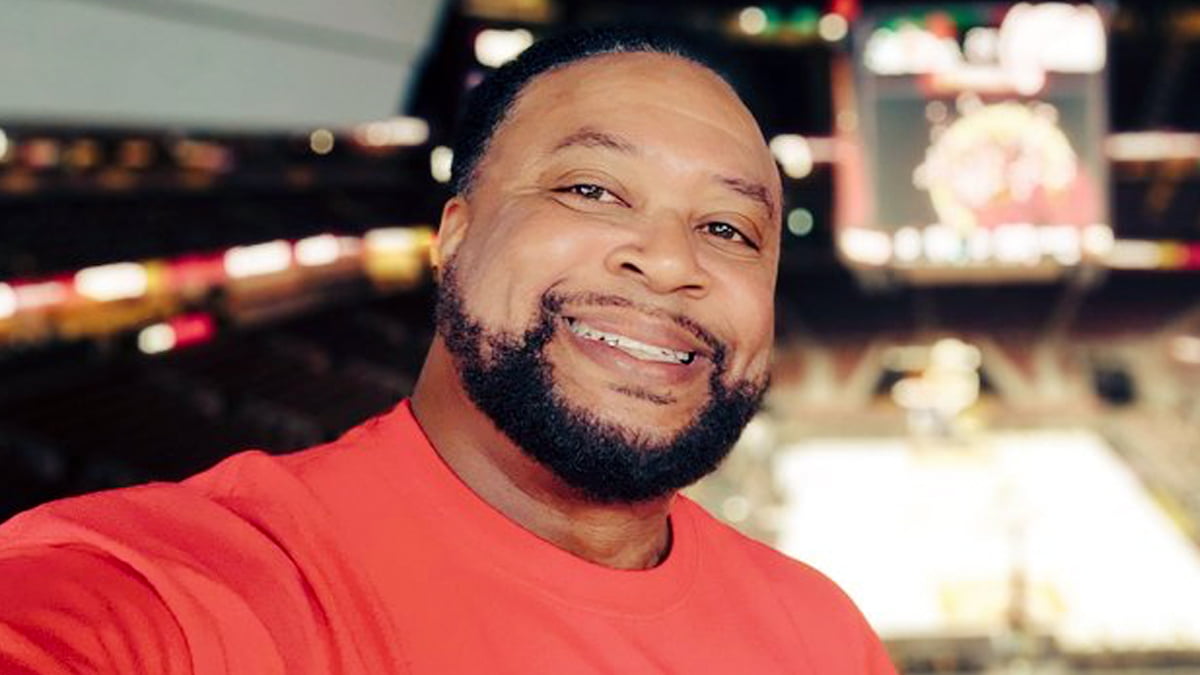Today’s edition of Social Studies features the lead Digital Coordinator for AM 570 LA Sports in Los Angeles, Matthew Demeke. I met Matthew for the first time at the 2023 BSM Summit where he sat on a social panel. When I started this series I knew he would be perfect to talk to about the social media space and terrestrial radio’s place within it.
Matt started with AM570 in 2018. He didn’t have a background in radio but learned the industry quickly by working with VP of Marketing Dave Weiss, elite talent like Petros and Money, and EVP of Premiere Networks and iHeart Sports Don Martin. As a one-man digital department, Matt wears a lot of hats. He’s involved in idea generation, strategy development, and content publishing. In addition to his process, this conversation hits on the challenges radio faces in the digital space, how to use social media to drive revenue and more.
If your station is looking for creative ways to up its social game in 2024, this interview is for you. Be advised our 30+ minute conversation has been edited for clarity and brevity. For the extended interview, visit Barrett Media’s YouTube channel.
Alex Reynolds: Give me a sense of what your day-to-day looks like, and the type of team you have at 570.
Matthew Demeke: The digital team at 570 is actually just me. I handle everything with social and I’m in charge of growing our Facebook, Instagram and TikTok accounts. But we do have a team at 570, which includes our talent and my boss [VP of Marketing] Dave Weiss. We work closely together. Our producers help out too with social content. So, I kind of have the title, but everybody chips in.
AR: Talk about some of the opportunities and challenges that come up on the digital side. You have a terrestrial brand behind you but many other things come with radio.
MD: I feel like the challenge every day is how do you take audio and make it visual to where you’re getting that social engagement and promoting the talent’s brands at the same time. Honestly, it’s a daily struggle. I think about it all the time. Our team at 570 is so good at creating opportunities to where I can succeed.
For example, David Vassegh, our Dodgers insider, his content is invaluable on social. When I first got here, the challenge was [his content] was going on air, but none of it was making it on social. I was saying, ‘what you guys say is super powerful.’ You guys don’t know it sometimes because we’re in a studio and we don’t see people.’
So I’d tell these guys, ‘what you say matters, especially during tough times, like when Kobe passed away. When the Dodgers win the World Series, that stuff matters. I feel like we’re making that transition to where these guys know, ‘ok, I said something on the air, now I need to package it or give it to Matt to edit so we can do social, and get it out that way.’
I don’t think there’s going to be a point where I’m like, all right, we’re all good, we’ve arrived. It’s a work in progress.
AR: How does that manifest into strategy? Break it down for me by platform.
MD: Instagram is really big for the company. I put a lot of my focus on Instagram. What [the talent] says, I want to make it visual. Sometimes you plan it out, but you don’t know what’s going to happen on that day. Instagram though is going to be all visual.
TikTok has gotten really big for us. What I did for TikTok is kind of a man around the city. Which press conferences can I attend? What fans can I talk to? Sports has a spot on TikTok and I didn’t realize it until the end of 2021 where we really started pushing it. It’s a different platform, where you’re talking to different audiences.
I was at a meeting for my church group and I told them I work at 570. This 14-year-old kid who likes the Dodgers told me, “You work for AM570? I saw them on TikTok. I saw you guys do All-Star Weekend content.” When he said that, I thought ok, this is cool. We’re going to hit a different audience.
We have to realize that with every platform we’re doing, it’s not just AM 570 radio listeners. It’s Dodger fans, it’s Clipper fans. The challenge is to bring them in and listen every day. The more you can grow your audience the better opportunity you have to get those listeners back to radio.
AR: How can you use social as a revenue driver or where have you found success there?
MD: There’s two examples. When COVID hit, our reporter, David Vassegh still got to travel with the team. My boss and I were talking and we thought ‘why don’t we do sponsored Instagram lives with the players, since he’s already with them?’
The first year we gave it a run and the second year it got sold to Navien. Now we’re responsible for 25 Instagram lives throughout the year. So obviously it’s a long season but I feel like the clients really like it because they can see the engagement with fans.
The second one is the Petros and Money Summer Tour. We do live videos of the guys at different events. It’s a stream that we did when COVID happened and we would do segments of giveaways that involve clients and stuff like that.
When I got here, social was kind of an afterthought. I think it’s cool that now we’re really working with sales to drive revenue and you can see it.
AR: Where do you see radio stations succeeding on social and where do you think the industry can be better?
MD: I feel like pre-COVID, there weren’t enough talent faces, representing the brand on station’s socials. Before, talents were featured here and there but I feel like they weren’t really well represented within their brands.
Now, especially in radio, I feel like everybody does a good job of that. Whether it’s reaction to news, sponsored posts, the talent’s at the forefront of it. There are no more bad graphics to promote an event at a casino. We’ve adapted that at 570 too.
Obviously, we don’t get the engagement like Bleacher Report does or these big companies like ESPN but what you try to do is stay relevant and local. I think people will come to you for that, and I know for a fact they come to us for Dodgers news and information. They want to hear what we say about the Dodgers. That’s something these big companies aren’t doing and we’re taking advantage of that.
AR: In your five years, are there any campaigns or content ideas that stick out in your mind that really worked well?
MD: The thing I’m most proud of is probably The Petros and Money Summer Tour. Every year these guys go on six stops to bars and restaurants around LA and it’s all sponsored by Chevy.
Well, 2020 hit and I remember in May we had a meeting and they were like, ‘can we do this virtually?’ I looked at [Dave Weiss] and I’m like, ‘We have two people here. What are we going to do virtually?’ [Weiss] says, ‘yeah, we can do it.’ In my head, I thought there’s no way but we ended up signing up for eight virtual summer tours.
For the first one, I remember everything was going wrong, streaming issues, audio issues. Basically, everything that could have gone wrong, went wrong. Then my boss came up to us and he’s like, ‘Guys, if we can’t do the second one, we’re going to have to pull the plug.’
So we stayed up all night. I went to the office the day before the second one from 8:30 in the morning and I left at 4:30am the next day. My boss slept on the floor of his office and got all the video edits done. We built the package for the stream, and we ran the stream, me and Ricky (the engineer) and Eric (the video guy) and we pulled it off. Chevy called my boss and they were thrilled. They said ‘we can’t wait for the rest of it’. We ended up getting 9,000 signups for Chevy and we were averaging about 2,000 in years past.
Our engagement was off the charts and everybody loved it. After that they were like, ‘from now on, we’re going to stream every one.’ And we still do it to this day.
That was really cool because nobody in the (iHeart) building was doing anything like this. Now, they’ve all implemented streaming and live stuff. It was really hard but it’s cool to see that nobody had done it and we pulled it off.
AR: You mentioned that you are a one-man department at a radio station. A lot of different people are in similar positions. What advice would you have for those social media managers?
MD: I think the biggest thing, and Don [Martin] always relays this to me, is really just showing up for people. The relationship you have with talent, especially in the radio industry, is so important. I probably had four to five phone calls today from just people needing things.
You just work so closely in the trenches with talent because you’re with them every day and you’re going to have to cut videos, green screens, and ad spots. If you show up and people see that you care and you’re producing, it goes a long way.
People see when you go the extra mile. That’s why I brought up the summer tour because people saw us in the office working all night. Then they’re like, ‘dang, these guys really care about their product and how the station turns out.’ That’s the advice I’d give to people – just show up every day, care a lot and you’ll get far.

Alex Reynolds serves as Barrett Media’s Digital Director. In this role, he oversees all social media scheduling and content creation, monitoring of the brands analytics, and contributes to the brand’s newsletters, conferences, and websites. Originally from Rockville, Maryland, Alex is a passionate lacrosse fan, and graduate of Elon University. He can be found on Twitter @Reynolds14_.






